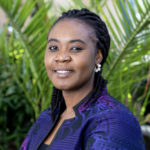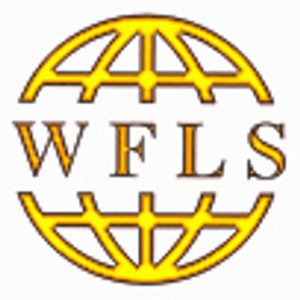The sixth and what is meant to be final negotiating session for a UN cybercrime treaty ended in August amidst disagreement. The draft new treaty is facing criticism from human rights groups and many others as States head to the concluding session in January 2024 without consensus on fundamental issues such as the treaty’s scope and what constitutes cybercrime. In recent developments, several states reintroduced offences related to extremism and terrorism into the definition of cybercrime. We will assess the implications of these additions which could increase the power of autocratic states to infringe on freedom of expression, promote surveillance and require any signatory States to cooperate on enforcement.
Focus will also be placed on the challenges concerning the lack of safeguards for procedural powers and international cooperation. How this future treaty relates to other international law, such as the Budapest Convention on Cybercrime, is another concern which will be explored.
We invite you to join us in this online webinar with international experts discussing the new treaty’s significance for human rights and cyber accountability at global, regional and national levels in an evolving digital governance landscape.
Panelists

Dr. Nnenna Ifeanyi-Ajufo, Professor of Technology Law, University of Bradford School of Law; Technology and Human Rights Fellow, Harvard’s Carr Center for Human Rights; Vice-Chairperson of the African Union Cyber Security Experts Group (AUCSEG)
Ifeanyi-Ajufo is a professor of law at the School of Law, University of Bradford. She is also a Technology and Human Rights Fellow at the Carr Centre for Human Rights Policy, Harvard University and serves as the Vice-Chairperson of the African Union Cyber Security Experts Group (AUCSEG) where she advises the African Union Commission (AUC) and African Member States on legal frameworks related to cybersecurity, as well as promoting cybersecurity in the region.

Joyce Hakmeh, Deputy Director, International Security Programme, Chatham House; Co-Editor, Journal of Cyber Policy
Hakmeh is a policy expert in international security focusing on cyber policy. She is the Deputy Director of the International Security Programme at Chatham House and the Co-Editor of the Journal of Cyber Policy. In her role, Joyce oversees the research agenda of the programme and leads the work of Chatham House on cyber policy issues.
Moderator

Allison Pytlak, Cyber Program Lead, Stimson Center
Pytlak is the Program Lead of the Cyber Program at the Stimson Center. The Program is focused on researching and fostering dialogue about cyber accountability. Allison’s past work in this area has examined inter-state cyber operations and international governance structures. In her prior role with the Women’s International League for Peace and Freedom (WILPF), Pytlak monitored and reported on the UN’s working group on state behavior in cyber space and played an important role as a liaison and advocate for civil society participation. She has researched, published, and provided trainings about the gendered and human rights-based dimensions of cyber security and diplomacy.



Resources about the AHC process and cybercrime
- UN Office on Drugs and Crime webpage for the AHC process-https://www.unodc.org/unodc/en/cybercrime/ad_hoc_committee/home
- Draft text of the Convention (as of 1 September 2023) –https://www.unodc.org/documents/Cybercrime/AdHocCommittee/6th_Session/DTC/DTC_rolling_text_01.09.2023_PM.pdf
- UNODC Learning Course on cybercrime – https://www.unodc.org/e4j/en/tertiary/cybercrime.html
- Resources about regional and other relevant frameworks
- Africa’s cybersecurity treaty enters into force – https://directionsblog.eu/africas-cybersecurity-treaty-enters-into-force/
- Net Politics in Africa – https://directionsblog.eu/net-politics-in-africa/
- Cyber governance in Africa: at the crossroads of politics, sovereignty and cooperation – https://www.tandfonline.com/doi/full/10.1080/25741292.2023.2199960
- About the Budapest Convention – https://www.coe.int/en/web/cybercrime/the-budapest-convention
Perspectives and analysis
- What is the UN cybercrime treaty and why does it matter? – https://www.chathamhouse.org/2023/08/what-un-cybercrime-treaty-and-why-does-it-matter
- Global protection against cybercrime now within reach: Interview with H.E. Faouzia Mebarki, Chair of the AHC – https://www.chathamhouse.org/2023/06/global-protection-against-cybercrime-now-within-reach
- Key takeaways from the sixth UN session on cybercrime treaty negotiations – https://dig.watch/updates/key-takeaways-from-the-sixth-un-session-on-cybercrime-treaty-negotiations
- Closing Pandora’s box: UN Cybercrime Treaty negotiations –https://globalinitiative.net/analysis/un-cybercrime-treaty-negotiations-august-2023/
Resources about human rights, gender, and cybercrime
- Proposed UN Cybercrime Treaty Threatens to be an Expansive Global Surveillance Pact – https://www.eff.org/deeplinks/2023/08/proposed-un-cybercrime-treaty-threatens-be-expansive-global-surveillance-pact
- What Does it Mean to Gender Mainstream the Proposed Cybercrime Convention? https://chathamhouse.soutron.net/Portal/Public/en-GB/RecordView/Index/191233
- Chatham House submission to the 6th session of the Ad Hoc Committee (AHC) on cybercrime: gender considerations on the convention draft text – https://www.unodc.org/documents/Cybercrime/AdHocCommittee/6th_Session/Submissions/Multi-stakeholders/Chatham_House.pdf
- Gender mainstreaming and the proposed cybercrime convention: Commentary on the consolidated draft – https://www.unodc.org/documents/Cybercrime/AdHocCommittee/4th_Session/Documents/Multi-stakeholders/Chatham_House_Submission_to_the_AHC4.pdf
- See also an earlier webinar in our series: “Cyber Norms, Law and Accountability: Roads to Progress?” with Katitza Rodriguez of the Electronic Frontier Foundation, offering views on the AHC process from a human rights perspective (May 2022)
